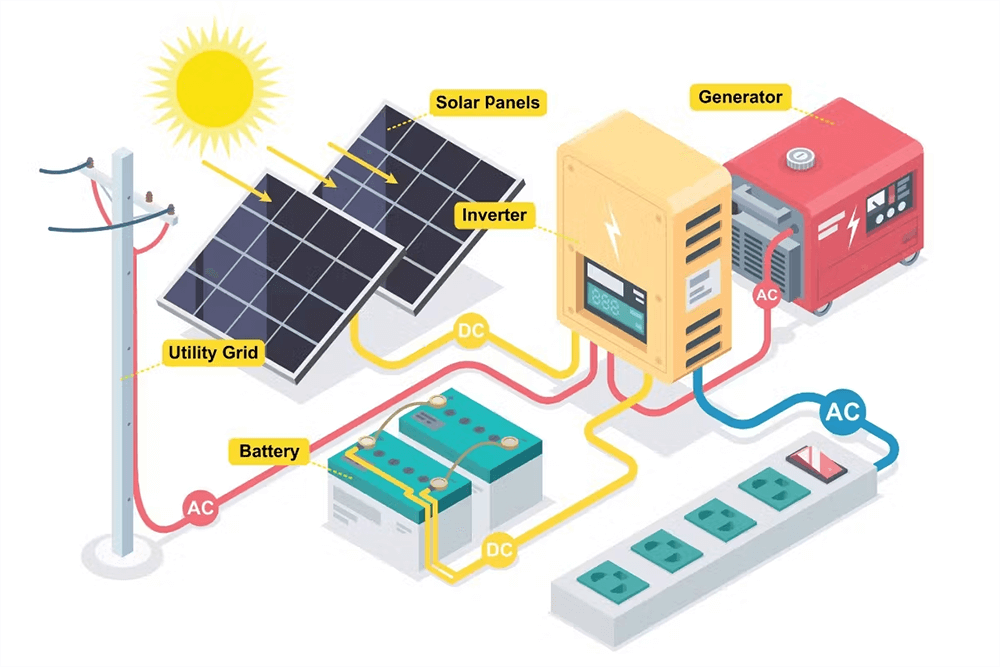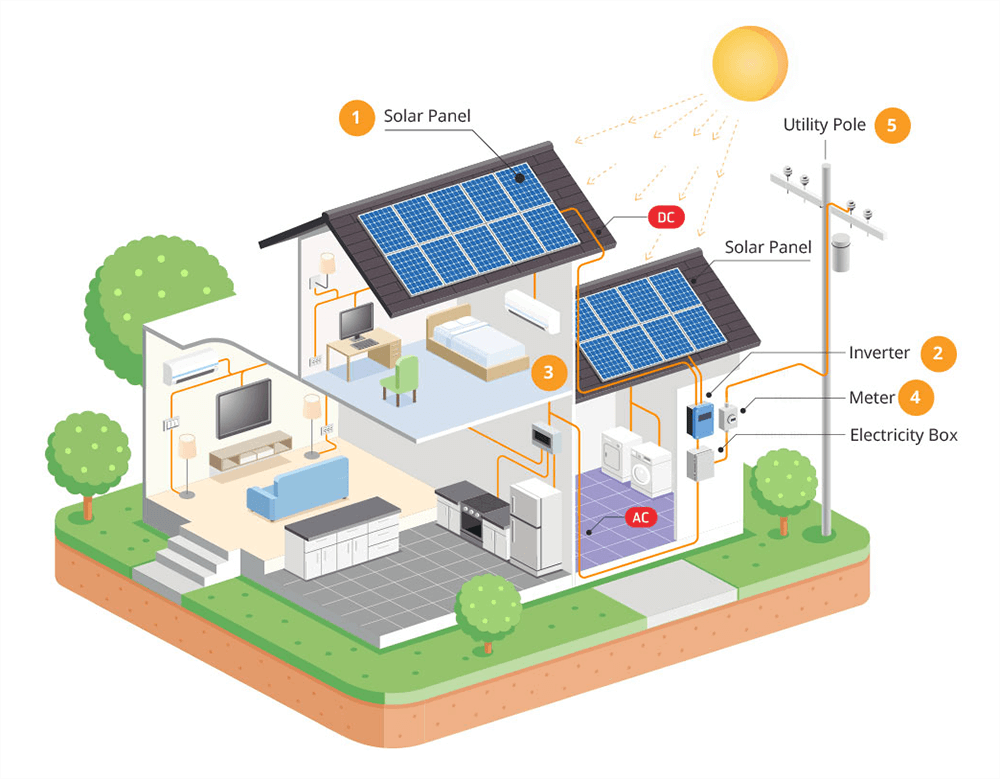With the growing trend towards sustainable energy across the globe however, comes the inevitable inclusion of the solar inverters in such systems. Usually not given the appropriate attention, this apparatus is important in the processes that convert solar energy into electric energy that can be used appropriately in providing power to domestic, commercial and industrial needs. Familiarizing oneself with its purpose, kinds and benefits may assist in proper planning while constructing or modifying solar energy systems.
What is A Solar Panel inverter?
A solar panel inverter is a unique piece of equipment whose main purpose is to change the DC energy that the solar panels produce into AC energy that can be easily used in any households, commerce etc. The energy of the solar panels would otherwise be useless if direct current is not changed to alternating current, as there are few products and no electrical grids that can accept direct current.

The term "inverter inverter" can sometimes be used to emphasize the dual role these devices play in not only converting DC to AC but also managing the overall performance of the solar energy system.
Types of Solar Inverter Inverters
Several categories exist when it comes to solar inverters, all of different use:
- String Inverters: These happen to be the most popular type of inverters found in residential and commercial solar systems. The system ties up several solar panels in a string and one string inverter covers the whole output by changing it to AC. These work well in cases where the configuration of the solar panels is homogenous.
- Microinverters: These devices are placed on every solar panel and they are known for converting the DC electricity produced to AC electricity at the spot where the electricity is being produced. This ensures the output of each panel is maximized hence best used in systems where shading of one or more panels is likely or when the panels are installed at several planes.
- Hybrid Inverters: A hybrid inverter for solar panels is one which can produce Geo for PV and also utilize batteries for Solar backup energy when the sun is not shining. It performs energy conversion from DC to AC type and after it does this it helps in storing using inbuilt energy cabinets hence everyone becoming energy sufficient.
- Central Inverters: Mostly installed in large solar plants, Central Inverters are the objects used to adapt a lot of energy conversion at once therefore making them particularly cheap in very large (lets say utility and purpose built) solar systems.

Why Solar Inverter Inverter is Critical
- Increases Output Energy From Solar: The solar inverter inverter makes sure the energy output from the solar panels is maximized by converting the Solar DC power into usable AC power with elimination of losses to the fullest.
- Grid Connective: When operating, solar inverter inverters ensure that the output characteristics of the solar panels are in unison and in phase with the grid satisfactorily to enable dispatch of excess energy to the grid whenever required.
- Energy Storage Management: For systems with batteries, the solar inverter inverter also controls the charging and discharging of the grid-battery nexus enabling an efficient switching between grid electricity and solar power.
- Remote Monitoring: Most of modern solar inverter inverters have the inbuilt feature of remote monitoring of the performance of the system that requires assistance of the users. Hence the information about weight management and configuration of the energy in the house is more effective and problems are detected easily and early.
Choosing the Right Solar Inverter Inverter
When choosing a photovoltaic inverter for your system, it is important to take into account the following aspects:
- System Size: Central inverters are typically deployed in larger systems, while string or microinverters are best suited for smaller more residential systems.
- Budget: In terms of inverters cost is varied although micro inverters are likely more expensive a than other inverter types but they enhance performance on systems with panels arranged in different orientation.
- Energy Needs: In case you wish to add solar battery storage or even expand your system later on, you might as well consider investing in a hybrid inverter which will overcome such limitations and provide potential savings in the long run.
Conclusion
An inverter is not only a device that is used for the purpose of conversion. Additional to this importance, the solar inverter is the central component of the entire solar energy apparatus. It does not matter whether you are running a small household or machinery for some large industrial process, appropriate inverter selection is very important to achieve the desired performance and efficiency of the equipment. Changing world thru solar energy still can not be sure that there will be no more solar inverter in the future, as this will still be a pivotal development driving compliance in the more energyssufficient eco-friendly world.







